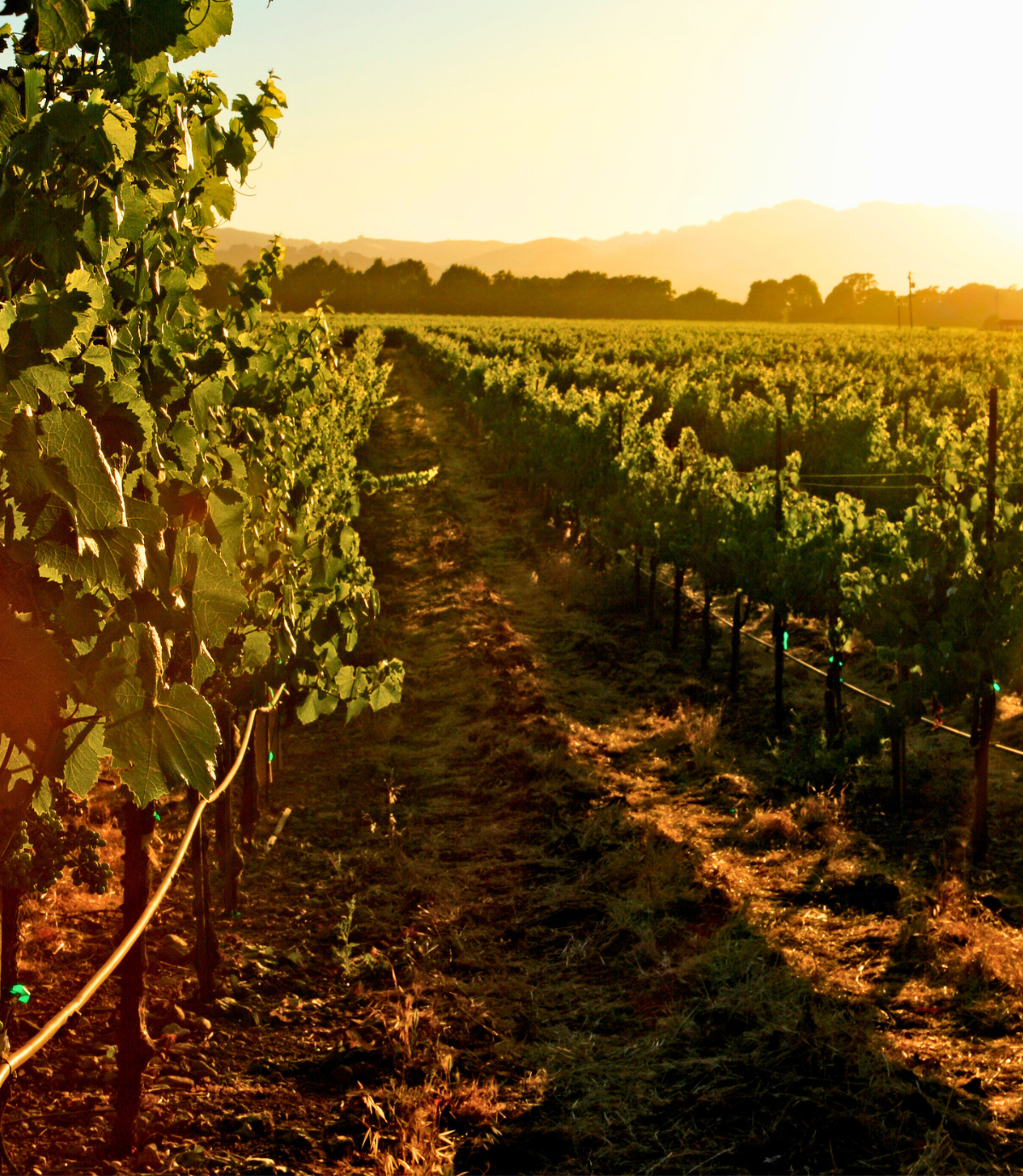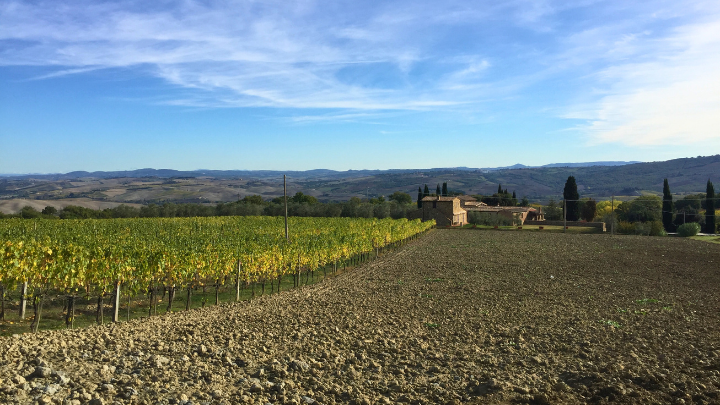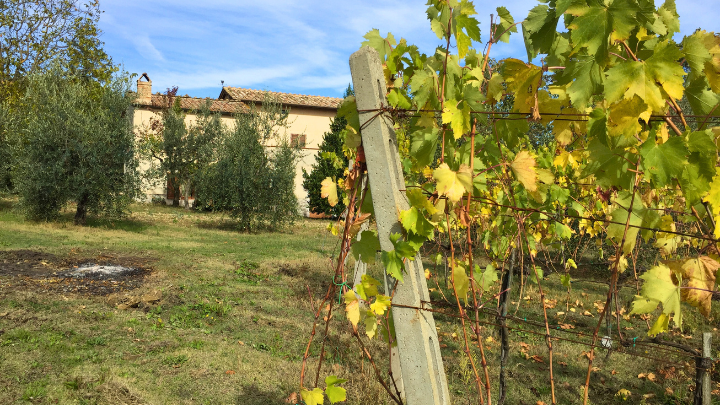
Leadership Lessons from an Italian Vineyard
Published in Accountability, LeadershipWhat Results Does Your Culture Produce?
A version of this blog was posted in October 2015. In October 2024, Georgia and Tom Davis celebrate their 50th wedding anniversary and have invited six couples to join them in the Tuscany region of Italy. Janet and I are honored to be included.
The air was crisp, leaves were turning and the grapes had just been harvested.
It was October in Italy and we were enjoying the companionship of good friends, stunning sights, and, of course, great food and wine.
This photo was taken at one of our favorite stops in Tuscany with winemaker Fabio Giannetti at his family’s Montalcino winery.

In 1490, one of Fabio’s buildings served as a kiln for making bricks. Later it was decided the kiln’s hilltop location and rich soil could be put to better use as a place for making great wine. Fabio’s family has been caring for this winery for generations and named it #la Fornace (“the Furnace”) out of respect for the land’s history.
Same Factors, Different Results
Wine is the product of grapes, climate, art and science. Wine is bottled love.
We were reminded that even when the same type of grape is planted in different vineyards, the resulting wine produced by each winery can be strikingly different.
Minerals in the soil and the grapevines’ exposure to sun, wind and water are factors affecting the grapes. Grapes require sufficient warmth to ripen fully; too much warmth can dilute their flavors. Winemakers must be sensitive to climate conditions that can produce high levels of acidity and tannins in the grapes, which will yield a harsher tasting wine.
“Our wine is based on our experience,” says Fabio. “There’s no such thing as ‘too much experience.’”
Methods chosen by the winemaker for growing the grapes, knowing when to harvest them, processing the grapes, then aging and storing the wine all contribute to the wine’s taste.
Leaders of high-performing organizations have much in common with the world’s best winemakers.
How is it that some leaders—faced with the same competition, the same regulations, the same economic conditions and working in the same industry—are able to produce better results than other leaders?
An Italian winemaker shared some of the secrets from his vineyard, and these practices apply to leaders interested in nurturing and sustaining a culture of high performance.

Cultivate Your Vineyard
Accomplished winemakers have a deep respect for the land and bring tremendous pride to their craft to produce incredible-tasting wines.
Great leaders establish and nurture a culture in their organizations where four factors determine high performance.
- Character counts. Fabio has a very clear idea of how he wants his wine to look, smell, taste and age, and he has set high standards for getting these results. Fabio calls his approach to wine-making his “philosophy” and the result is one of the most elegant wines in the world. Like a master winemaker who appreciates the character of the grape, exceptional leaders appreciate that their organizations’ outcomes are a direct result of their employees’ character and, ultimately, their execution to achieve the organization’s vision. Without great grapes, there can be no great wine. Without great people, there can be no great results.
- Great care is taken to ensure a spectacular outcome. Grapevines can flourish or falter, and so can people. “The soil,” says Fabio, “does seventy percent of the job. The winemaker respects the soil and does his best to bring out the best in the grapes.” In the vineyard, the winegrower digs ditches to ensure proper drainage. Roses are planted to serve as early warning systems for disease. Climate changes are monitored to understand how changes in rain, temperature and sun affect the grapes. In companies, culture is like the soil in a vineyard. Great leaders nurture their culture, respect their employees and know that training, mentoring and coaching will help to bring out the full potential of their colleagues.
- Unwanted elements are removed. Once the grapes are harvested and fermentation begins, the winemaker must be particularly attentive. At this phase—no longer grapes and not yet wine—the “must” provides clues as to whether the wine will be good or spectacular. During this six-month process, the winemaker removes sediment—skins, seeds, dead yeast cells, bacteria, pulp and occasionally stems. A wine with too much suspended matter will appear cloudy and dull, and unwanted sediment affects the taste. Fabio says, “Producing great wine is a matter of taste and test.” The fermenting must is tested two times per day over a three-month period and tasted by the winemaker, indicating to the winemaker what adjustments need to be made to produce a great-tasting, long-lasting wine. Like fine winemakers, leaders need to observe performance at every level of the organization to determine what adjustments should be made. For leaders expecting high levels of performance, tracking does the heavy lifting of accountability. Mistakes happen. Underperformance is a pattern. Leaders must determine what’s causing the underperformance and coach accordingly. And like unwanted elements in a wine’s fermentation process, employees who are unwilling or unable to meet their performance expectations must be removed from the organization.
- Patience has its rewards. Making fine wine requires patience. It takes five years before a newly planted grapevine bears fruit. It takes another five years before a grape worthy of being labelled Brunello di Montalcino is harvested, fermented, aged and ready to drink. Yet a Brunello di Montalcino is even better fifteen years from the date of the harvest. Few leaders have this type of patience. Leaders of high-performing companies I interviewed for my book Accountability took a long-term approach to investing in their business. As a result, these companies out-perform other companies in their industry. While leaders of these high-performing companies bring a sense of urgency to their daily work, they also are focused on the longer-term view. This mix of urgency and patience is what separates high performing companies—like fine wine—from all the others.

No two grapes are exactly alike. No two growing seasons are exactly alike. Yet accomplished winemakers find a way to bring out the best their grapes have to offer year after year after year.
No two people are exactly alike. And no two businesses are exactly alike. Yet accomplished leaders find a way to bring out the best in their colleagues year after year after year.
What kind of workplace environment are you cultivating to bring out the best in your people?
Ready to reset?
Attend my free Accountability webinar: I Did It! to set and achieve your 2021 goals.
- February 17th from 11 AM – 12:30 PM Central Time
- My free webinar will help you:
– Sharpen your personal goals
– Improve time management
– Tackle tough work-related issues
– Support remote workers
Learn More
To dive even deeper into the topic of accountability, I invite you to purchase a copy of my bestselling book, “Accountability: The Key to Driving a High-Performance Culture.”
Become a better leader.
Download my three free e-books.
Free Tips
Sign up to receive free tips on business, leadership, and life.
Get My Latest Book
HOW LEADERS DECIDE
History has much to offer today’s current and aspiring leaders.
Business schools teach case studies. Hollywood blockbusters are inspired by true events.
Exceptional leaders are students of history. Decision-making comes with the territory.



